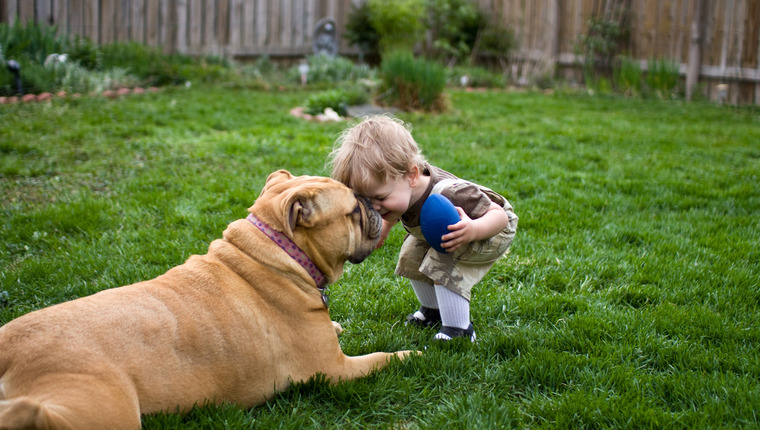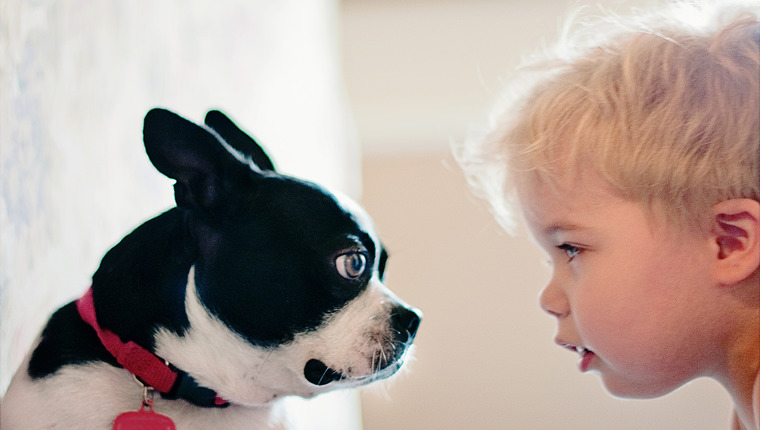
The relationship between humans and dogs goes back millennia, and it begins even before the very youngest humans start kindergarten, according to a new study.
The study, published in Human-Animal Interactions, found that young children, even those under the age of two, instinctively want to help dogs.
Researchers put 97 toddlers in rooms with dogs in playpens – the children were aged from just 20 months to three years old. They wanted to see whether they’d pass the pups items like toys and treats, that they were unable to reach.
A Helping Hands
When a dog wanted an item, perhaps begging or whining, or looking at the child and then the object, the toddler would get them the item in exactly half of the trials.
In comparison, when a dog wasn’t interested in the item, the child would only help them 26% of the time.
Seemingly, children can notice and understand what a dog wants even at a very young age – it’s around this age that they can do the same for other people too.
“Previous studies have shown children, even at really young ages, want to behave in ways that are helpful to people,” explained Dr. Rachna Reddy of Duke University, who led the study.
“’Now we know they have a similar instinct to do this for dogs.
‘We have lived alongside dogs for thousands of years, so we have a special history with them, which may help to explain this.”
Toddlers With Dogs at Home Were Most Helpful
Researchers used three small and friendly dogs: Fiona, Henry, and Seymour. Each child met one of the dogs alongside a researcher, while their parent read a magazine.
The researcher would pretend that they had to leave or do some computer work, and would drop a toy or treat out of the reach but in the line of vision of the dog. Those children who had dogs at home were best at helping the dog. However, researchers explained that this might be because they feel more confident around canines, than necessarily wanting to help them more.
And they were more focused on helping the dogs get food than treats. In one trial, the child began shouting “She’s hungry!” at their parent before it started.
Growing up with dogs can have many benefits for children. It could even protect against developing Crohn’s disease as an adult, and dogs can lower stress in children too.









